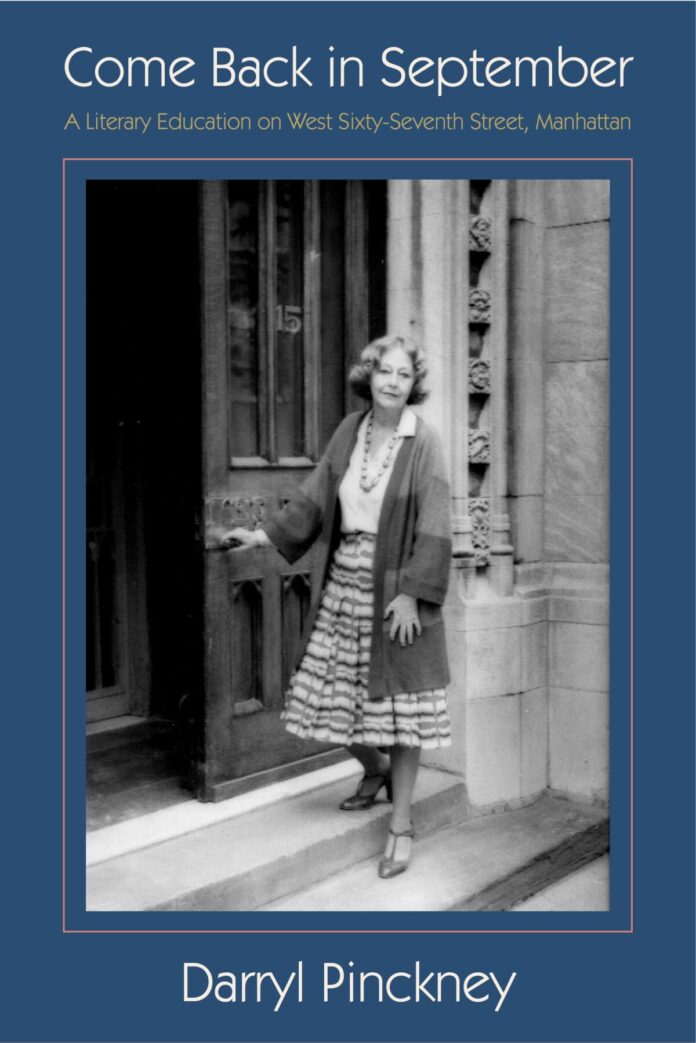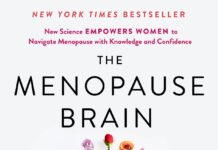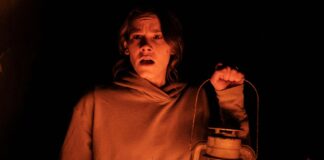On the Shelf
Come Back in September: A Literary Education on West Sixty-Seventh Street, Manhattan
By Darryl Pinckney
FSG: 432 pages, $32
If you buy books linked on our site, The Times may earn a commission from Bookshop.org, whose fees support independent bookstores.
When I was young and still working in book publishing, a rare and generous boss took note. “If you want to write,” he said, “you must read Elizabeth Hardwick. ‘Seduction and Betrayal.’” After work I went straight to my local bookstore and purchased a copy of these landmark critical essays on women artists, with an introduction by Joan Didion.
I was 24; I was living in New York. I went to parties and Joan Didion was standing there; I answered the phone and it was Bill Styron calling. I read more than I ever have in my life. It was more than an education; it was it.
The writer Darryl Pinckney first came to know Hardwick in her creative writing class at Barnard in the early 1970s. He applied late but impressed her by being “a Black guy from Columbia [University] across the street” who could “rattle off a couple of middle-period Sylvia Plath poems when she asked me what I was reading.” Before long, Pinckney was headed over to Hardwick’s apartment, where he furthered his education by listening to her reading recommendations and unbelievable one-liners.
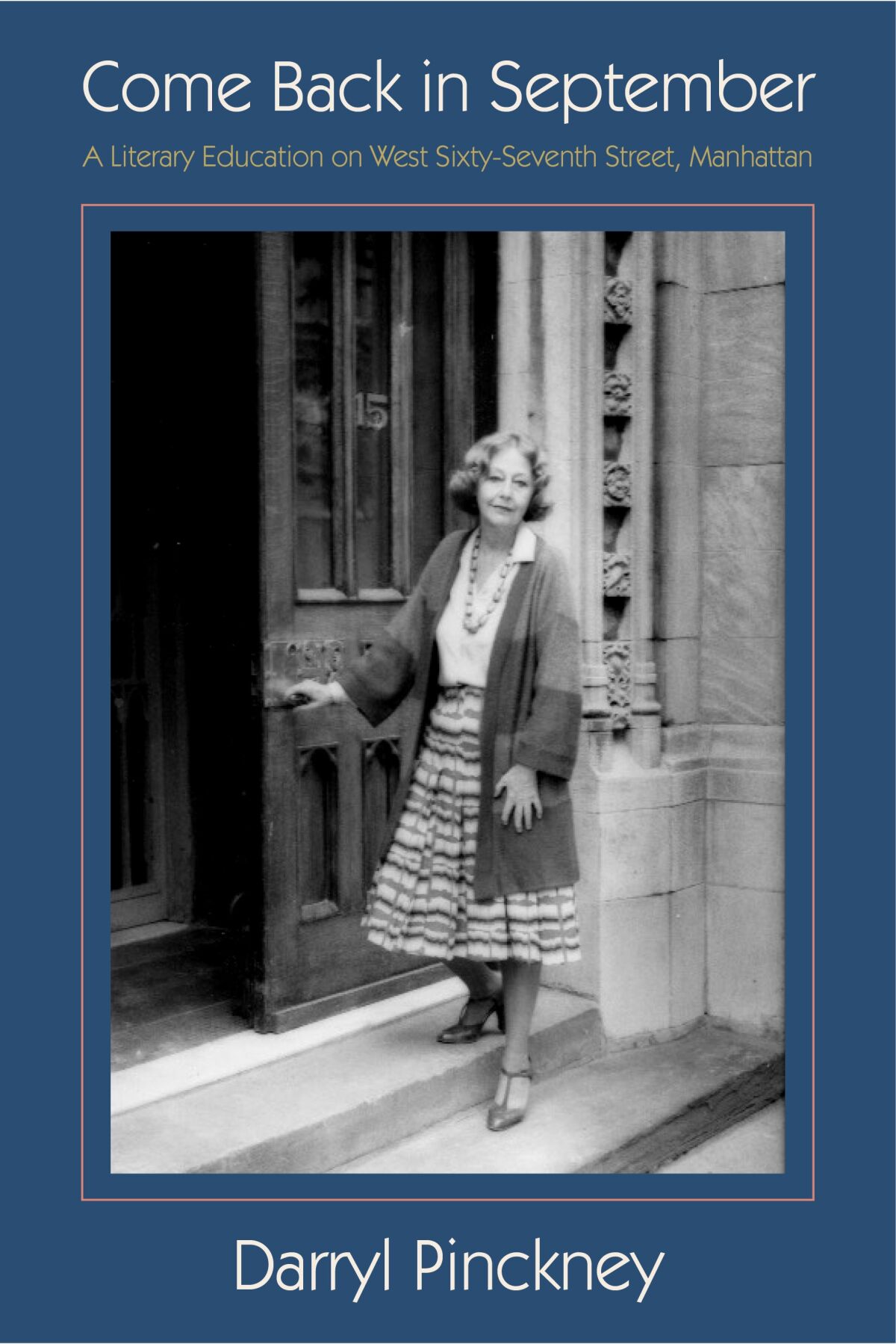
(Farrar, Straus and Giroux)
Reproduced in Pinckney’s new memoir, “Come Back in September: A Literary Education on West Sixty-Seventh Street, Manhattan,” those aperçus, which belong in some kind of literary hall of fame, include:
“My first drafts always read as if they had been written by a chicken.”
“Sex is comic and love is tragic. Queers know this.”
Asked during a lecture who was her favorite American woman novelist, she answered, “Henry James,” and no one laughed.
“Robert Lowell never married a bad writer.”
Hardwick has never been a mysterious figure for book people, but the uninitiated might not know she was married to Lowell, the famously troubled 20th century poet. Thanks to the New York Review Books Classics series, “Seduction and Betrayal” and her novel “Sleepless Nights” — considered by many to be her masterpiece — have remained in print.
In 2019, the writer Saskia Hamilton published “The Dolphin Letters,” which chronicles the pain inflicted by Lowell when he used Hardwick’s letters about the breakup of their marriage in his collection “The Dolphin.” And last November, Cathy Curtis published a new biography of Hardwick, “A Splendid Intelligence.” Interest in her personal life persists through Pinckney’s book, although he is determined to show Hardwick the writer and genius. As she herself told Pinckney: “Elizabeth Lowell never wrote a thing.”
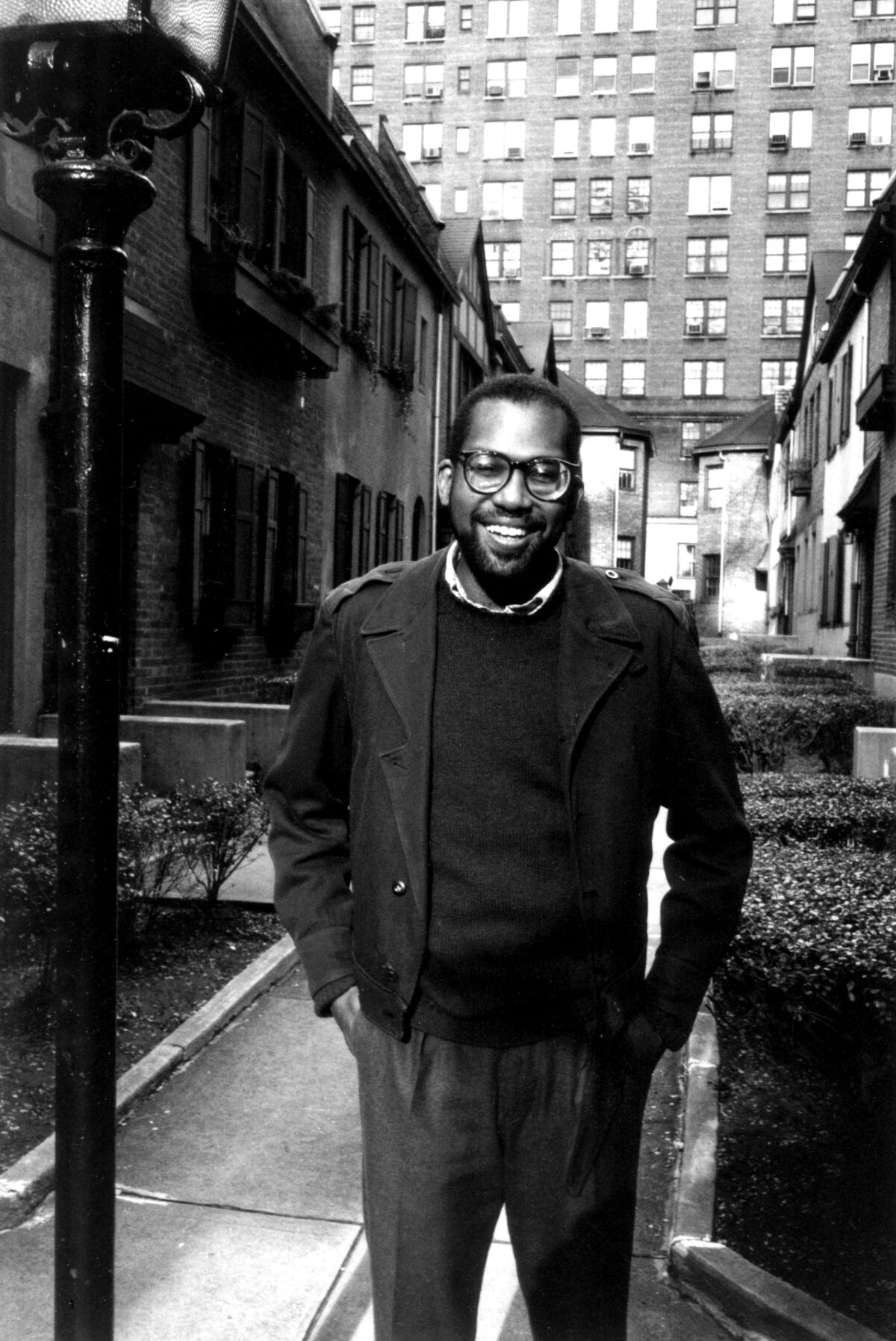
Darryl Pinckney photographed at the Pomander Walk apartment complex in New York City.
(via Dominique Nabokov)
Like James Boswell’s “Life of Johnson,” Pinckney’s portrait is exhaustive and exhausting. Even the most avid literary rubberneckers on all manner of topics — the New York Review of Books; Farrar, Straus and Giroux; Susan Sontag; Barbara Epstein; gay life in New York in the ’70s and ’80s; the delights and burns of the relationship between mentor and mentee — will be worn out by the detail and sprawl of Pinckney’s memories.
This isn’t to say there’s no fun — only that there’s too much, and an editor might have better guarded against the sensation of literary hangover. As Pinckney writes one morning: “Daybreak. Mercer Street was refreshing. I could feel nothing in my legs and I was incapable of hearing.”
Pinckney is a sly writer, with the impressionistic brush of a poet but the dedication of a historian. He gets his own one-liners in there too. It is a memoir of his own life, his development as a writer and his coming of age as a Black, gay man.
His friendship with Hardwick is troubling to some, namely the Black writer Sterling A. Brown, who tells him: “Man, you are so influenced by those white intellectuals. You need to get away from them and be with some n—.” At the ballet with Hardwick, Pinckney overhears an editor wonder what she is up to on a date with a young Black man. He thinks it’s funny and relays the story to Hardwick. She’s outraged and vows to “make threatening phone calls to the editor in question.”
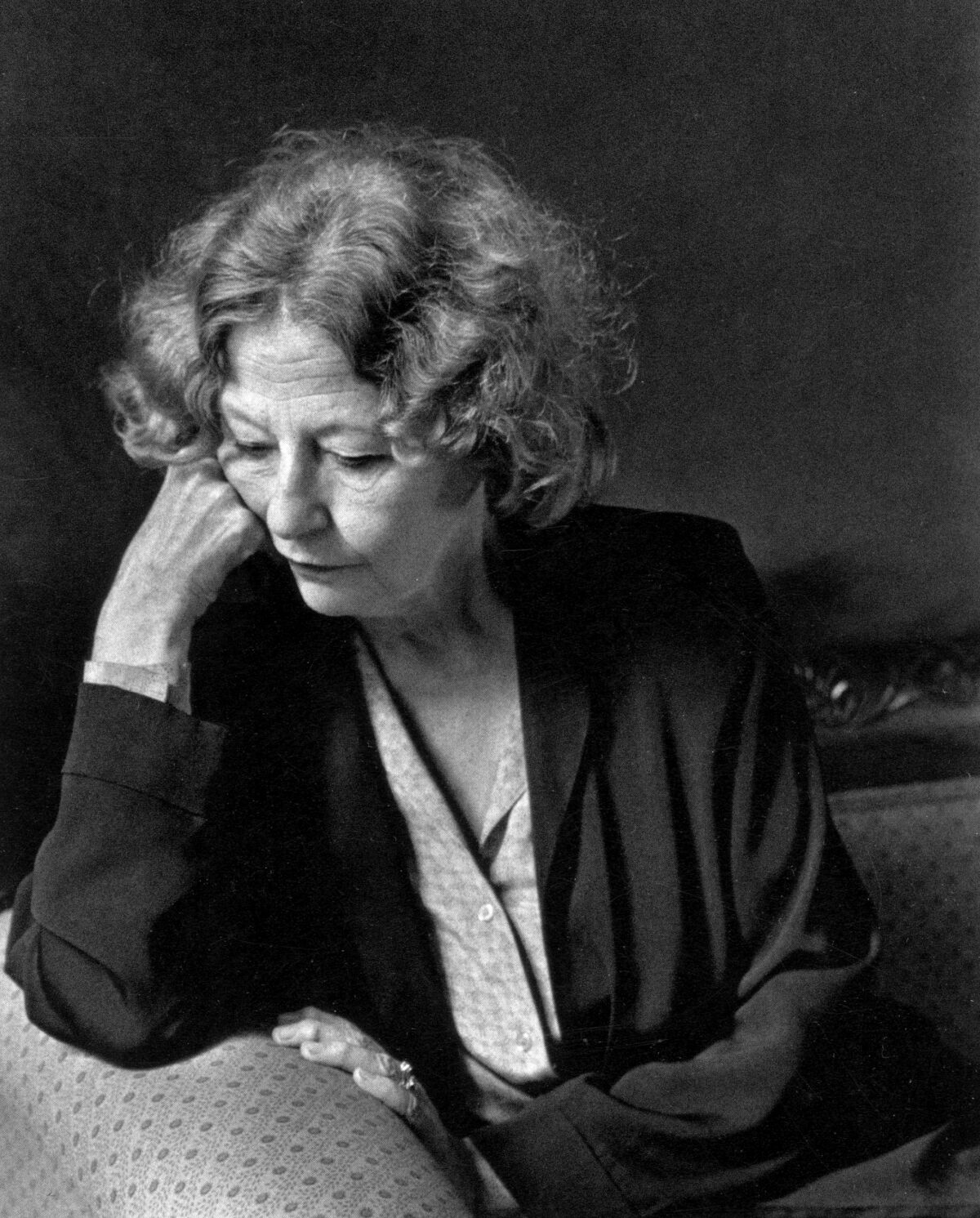
Hardwick was a legendary writer and editor. For Pinckney she was a source of recommendations, one-liners, advice and wisdom.
(© Estate of Evelyn Hofer)
Their friendship is also disappointing to Pinckney’s parents, who would rather have seen him under the wing of James Baldwin or Ralph Ellison. But part of Hardwick’s allure is that she is not like him. In Mathieu Lindon’s gorgeous memoir of his friendship with Michel Foucault, “Learning What Love Is,” he writes, “I liked the fact that my father was my father, as well as the fact that Michel wasn’t.” With Hardwick, Pinckney is not a Black son, he is a young reader.
This is also a strain between them. “You think every white lady is me,” she tells him. “No, that wasn’t it,” Pinckney writes. “I was pretty sure there was no other writer like her.”
So much of this book is about the pain and hard work of writing, but also about the pleasure of reading and being read, and of acknowledging that glistening web between reader and author. After a performance of Benjamin Britten’s opera “Billy Budd,” Pinckney aches to call Hardwick, but it’s too late at night. “I wanted to tell someone ‘Billy Budd’ was the saddest thing I’d ever read.”
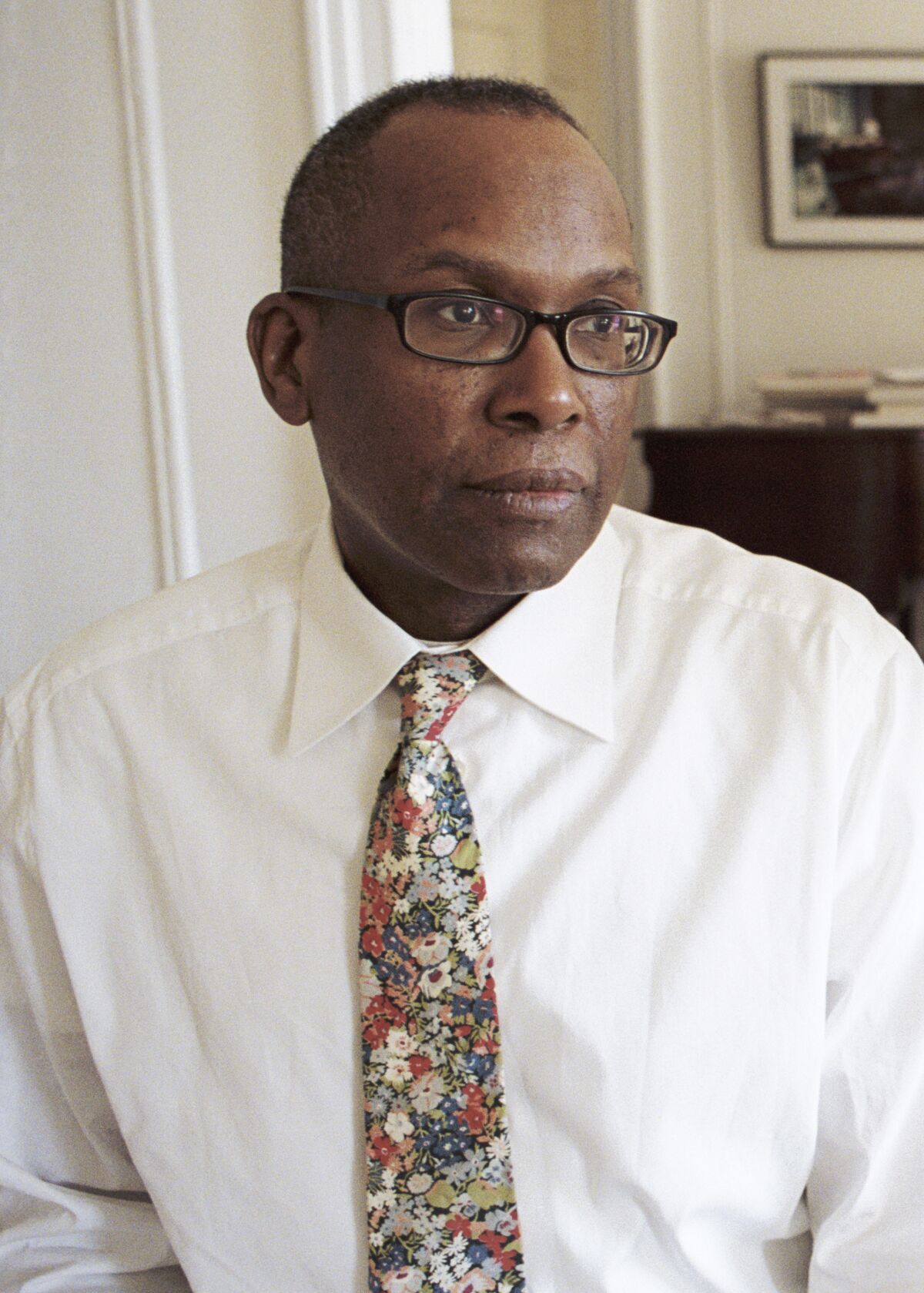
Pinckney’s memoir also chronicles the great literary institutions and gay nightlife of late 20th century New York.
(Dominique Nabokov)
Hardwick died in 2007 at age 91. Pinckney may not be able to call her up after the opera anymore, but she’s alive and well — more than well, really, she is absolutely on fire — in these pages. “That’s the problem with writing books,” she tells Pinckney; “you became a subject.” It says something about Hardwick’s brilliance that even after reading nearly 500 pages about her, I wanted more. I walked over to my bookshelf and picked up that same copy of “Seduction and Betrayal” and turned to her essay on Plath.
“She has the rarity of being, in her work at least, never a ‘nice person,’’’ Harwick writes. “There is nothing of the mystical and schizophrenic vagueness about her. No dreamy loss of connection, no manic slackness, impatience, and lack of poetic judgment. She is, instead, all strength, ego, drive, endurance — and yet madly concentrated somehow, perplexing.”
This is what Hardwick learns from Plath, even as she hones her peerless skill in criticism. And this is what Pinckney learns from Hardwick, an education that transcends the classroom, the opera house, the Upper West Side apartment. Pinckney means to praise Hardwick’s editing skills when he tells her she’s like “the Nadia Boulanger of American literature.” “Oh. That is such a put down,” Hardwick shudders. All the air gets sucked out of the room. “I am not a teacher,” Hardwick steams, “I am a writer.” Damn right. But the best writers become teachers to us all, whether they like it or not.
Ferri’s most recent book is “Silent Cities: New York.”

